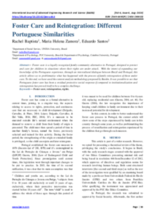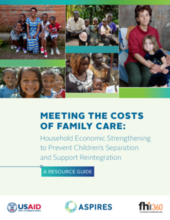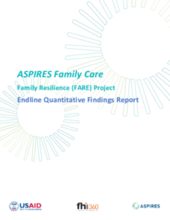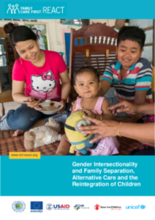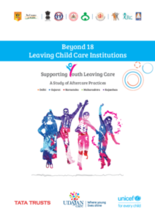Displaying 421 - 430 of 991
This article examines the family reintegration process for those in care in Portugal and Brazil.
This resource guide aims to assist program designers, funders, and implementers to select and incorporate appropriate and effective household economic strengthening (HES) measures into programs to preserve or reestablish family care for children.
The Family Resilience (FARE) project was developed to help build the evidence base on how to appropriately match economic strengthening (ES) activities with families at risk of family-child separation and with families in the process of reintegrating a previously separated child. The project offered an opportunity for learning about how to provide ES and other family strengthening services and how well they worked. This report focuses on the latter and summarizes changes in key indicators related to family-child separation over the course of the project.
This article examines the challenges encountered by, and the opportunities available to, young adults as they transition from informal kinship-based foster care to independent living in the Bikita District of Zimbabwe.
This study from Family Care First (FCF) and Responsive and Effective Child Welfare Systems Transformation (REACT) utilized a mixed method approach to data gathering and analysis to understand the effects of gender, identity, and institutional practices on the well-being of children in alternative care in Cambodia.
The special issue of Emerging Adulthood titled “Care-Leaving in Africa” is the first collection of essays on care-leaving by African scholars. This article, coauthored by scholars from North and South, argues in favor of North–South dialogue but highlights several challenges inherent in this, including the indigenizing and thus marginalizing of African experience and scholarship and divergent constructions of key social concepts.
This report on Aftercare is based on research on “Current Aftercare Practices” (CAP), with regard to Children in Need of Care and Protection (CNCP), under the Juvenile Justice (JJ) Act, 2015, conducted in five states of India: Delhi, Gujarat, Karnataka, Rajasthan and Maharashtra. It is about the status of Aftercare youth, or Care Leavers (CLs) transitioning from state care to adulthood in the wider community.
This mixed‐methods study presents data on the needs and availability of support of 222 Israeli care‐leavers, suggesting that the most urgent needs of care‐leavers are a lasting need for a stable and available support figure and assistance with educational issues.
This theoretical paper focuses on early-stage planning in young adults in transition from out-of-home care in the UK.
This theoretical paper focuses on early-stage planning in young adults in transition from out-of-home care in the UK.

